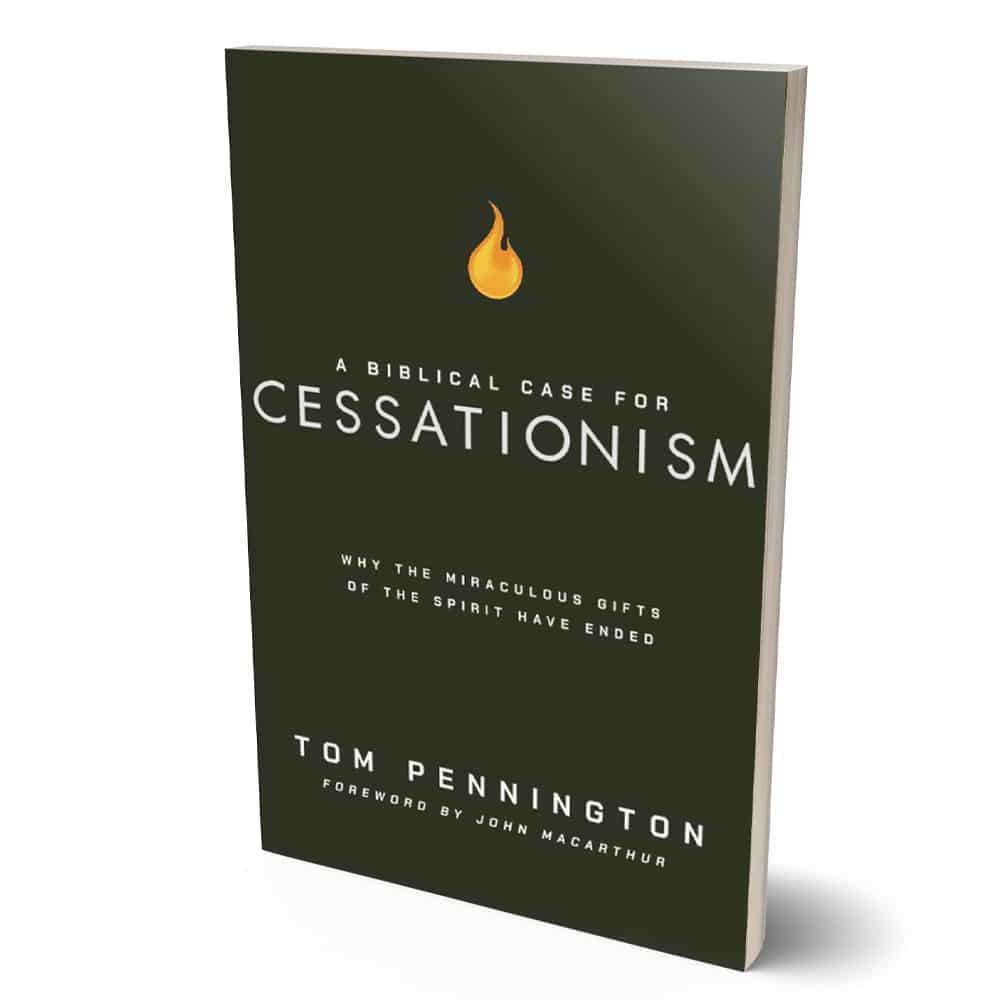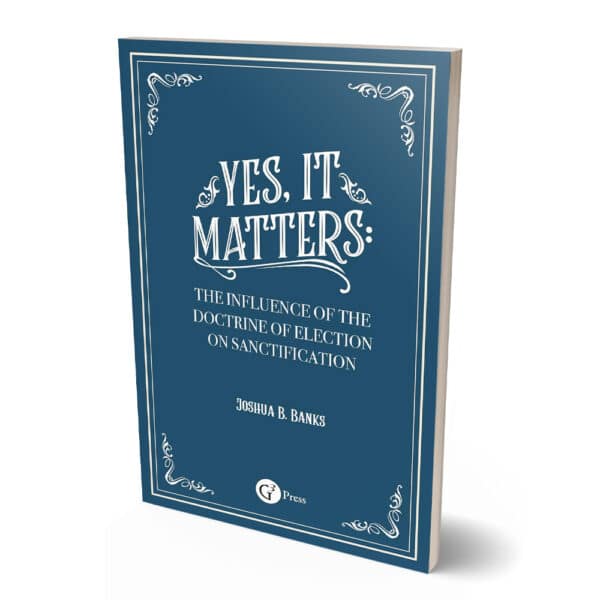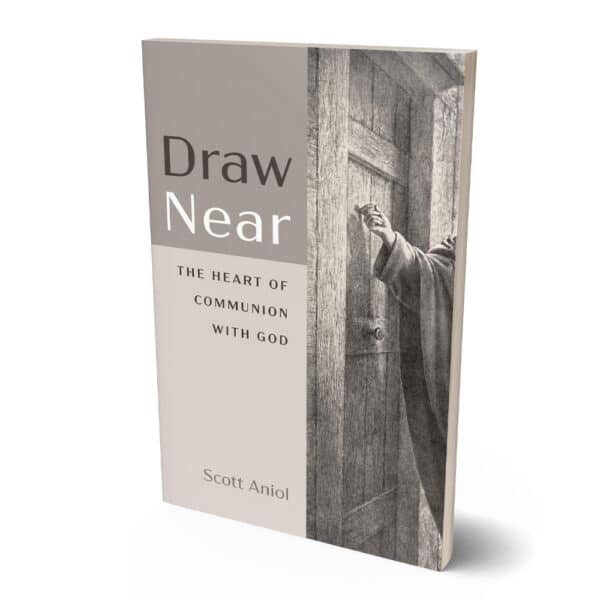Description
Did God intend for the miraculous gifts, so powerfully present during the ministry of the apostles, to continue throughout the church age? This crucial question has massive implications for every follower of Jesus Christ. Sadly, the debate over this issue has often produced more heat than light. But in the end, only one factor should determine how we answer that question: What does the Bible say?
In A Biblical Case for Cessationism, Tom Pennington carefully considers seven primary biblical arguments for the cessation of the miraculous gifts of the Spirit. As a seasoned pastor and faithful expositor, Tom will help you consider what Scripture teaches about an issue that affects every aspect of the Christian experience—from your view of Scripture and philosophy of church ministry to your daily walk as a disciple of Jesus Christ and your relationship with the Holy Spirit.
From the Preface:
In 2013, Strange Fire, a conference sponsored by Grace to You and held at Grace Community Church where John MacArthur pastors in Los Angeles, marked a major resurgent interest in defending the person and work of the Holy Spirit. Some 3,500 pastors, church leaders, and lay people gathered to hear sermons proclaiming the biblical ministry of the Holy Spirit, and tens of thousands watched the live stream. Thomas Nelson also released the accompanying book, Strange Fire: The Danger of Offending the Holy Spirit with Counterfeit Worship, which has sold tens of thousands of copies worldwide.
In God’s providence, Grace to You asked me to present the biblical case for cessationism at the conference. I spent several months studying the Scripture and reading relevant literature on both sides of this heavily debated issue to digest the best arguments for and against cessationism. But my excitement about this opportunity came with a unique challenge.
The problem was not (as some continuationists argue) that there is insufficient biblical evidence for cessationism to fill an hour. My problem was the sheer extravagance of biblical material. I was faced with a difficult decision between equally tempting choices: to spend the hour I was given developing one argument, or to present a brief summary of the primary arguments. Both choices were fraught with slippery slopes and gaping chasms. If I concentrated on one argument, the uninformed on both sides of the issue would race to the conclusion that cessationism is a tune with only one string and one note. But if I tried to cover all the main arguments, I would have to leave crucial points and counterpoints on the cutting room floor, appearing to leave holes in an argument that has none. If you are familiar with my message at Strange Fire, you know that I eventually opted for the second option.
I have been fascinated by the response to the biblical case I presented. Over the ten years since the conference, I have been humbled and amazed at how the Lord has been pleased to use the conference including my message to equip and strengthen His church. In addition to the 80,000 or so who initially heard the message live, hundreds of thousands more have since listened on Grace to You’s website and YouTube.
Cessationists have written to tell me that a review of the biblical arguments strengthened their confidence in the Scripture. Pastors and educators have expressed that they use this overview to help equip their members or students. And I have heard from many Charismatics who had been told there are no biblical arguments for cessationism but were troubled by what they saw in their churches. In God’s providence, they watched or listened to the recordings of the Strange Fire conference and The Biblical Case for Cessationism, and the truth they heard resonated with them. Many have since left the Charismatic movement and developed a growing confidence in the Scripture. They have come to a biblical understanding of the person and work of the Holy Spirit, enabling them to truly adore and worship Him. It is because I am convinced those same audiences can benefit from having this content in print that I have written this book.
Since Strange Fire, I have further developed each argument, hopefully making the biblical case for cessationism more in-depth and compelling. Without the constraints of a one-hour sermon, I have been able to give further treatment to the details of the arguments. But I also wanted to keep it short enough so that no one interested in this subject would be discouraged by the book’s length.
Before we examine the arguments, I want to speak to you from my heart. Teaching and writing on this issue is not a pet passion I pursue or hobby horse I ride. As a pastor, my weekly preaching ministry is the verse-by-verse, consecutive exposition of God’s Word. But because I love Christ and love His church, I am also compelled on occasion to address pressing issues topically from God’s Word for the wellbeing of my flock. Likewise, the spiritual health of those who read it is the sole reason for this book.
Perhaps you’re new to the faith, new to your local church, or simply don’t know where you or your church stands on cessationism. As I hope to show, this is an important yet highly controversial issue that affects millions worldwide. It is crucial for you to know where your church—and you personally—stand on this subject.
Perhaps you were raised in a Charismatic home or church. It’s possible you struggle in your own mind with “Why do I believe” or even “Do I believe that the miraculous gifts have continued?” My prayer and goal is to help answer those questions and rightly deal with this issue for your sake. I hope to provide clarity to those wrestling with these types of questions.
Perhaps you are convinced of the cessationist position but have family or friends who are either in the Charismatic movement or have been heavily influenced by it. Unfortunately, many Christians cannot give a biblical defense for the truths they believe and the convictions they hold. Let me ask you: are you prepared to present a thorough, biblical defense of what you believe about cessationism? Are you prepared to help others understand the biblical reasons why the miraculous gifts have ceased? If not, you should be. My prayer is that this book will be a starting point in equipping you to defend what you believe. It is critical for you to invest in laying a biblical foundation on this issue.
Finally, my desire is not to be divisive. Rather, my intention is to be clear, concise, and definitive and to show that, in the end, my arguments are not so much about what cessationists are against as what we are for. I believe in the Spirit-inspired, all-sufficient, saving, sanctifying, instructing Word that gives us everything we need for “life and godliness” (2 Pet. 1:3). I stand with confidence on the Scripture, the product of the breath of the living God (2 Tim. 3:16).
What others are saying:
We live in a day in which charismatic teaching has misled many people. A wave of powerful personalities and hyper-emotionalism has left the church vulnerable to doctrinal aberrations. A Biblical Case for Cessationism is a much-needed antidote, providing a careful handling of Scripture and survey of church history on this crucial matter. I believe this book will guide you into a biblical understanding of the Holy Spirit and His gifts.
—Steven J. Lawson, President, OnePassion Ministries, Professor, The Master’s Seminary, Teaching Fellow, Ligonier Ministries, Lead Preacher, Trinity Bible Church of Dallas
As one who has devoted much of his ministry to engaging the very serious errors of the charismatic movement that have shipwrecked the faith of so many, I cannot say enough good things about Dr. Tom Pennington’s latest book, A Biblical Case for Cessationism. Dr. Pennington has provided the believer who is rightly skeptical of the charismatic movement yet feels ill-equipped to biblically answer its claims and practices, a tremendously helpful resource. This is a must have for the pastor and layman alike. I am so grateful to Tom for this important contribution to the body of Christ.
—Justin Peters, Evangelist and Apologist
We must honor and love the Holy Spirit, for He is God. One of the most important ways to do that is to base our beliefs about the Spirit on the Holy Scriptures that He inspired. Tom Pennington presents a convincing argument from God’s Word that the Holy Spirit no longer gives miraculous gifts to His servants. Here is a book that both cessationists and charismatics should read, sincerely asking, “What saith the Scripture?”
—Joel R. Beeke, President, Puritan Reformed Theological Seminary, Grand Rapids, MI
At time when much confusion and opposition persists concerning cessationism, Tom Pennington shows from Scripture why by God’s design certain gifts of Spirit given for the founding of the New Testament church did not continue beyond the time of the apostles. Clearly written, it will benefit a wide readership.
—Richard B. Gaffin, Jr., Professor of Biblical and Systematic Theology, Emeritus Westminster Theological Seminary, Philadelphia
Tom Pennington has written a brief biblical case for cessationism, a case that takes seriously not only the final authority of Scripture, but its sufficiency as the church’s “only rule of faith and life.” Just as our Lord Jesus Christ’s life was shaped and informed alone by “every word that proceeds from the mouth of God,” so also is that of every believer in him. Pennington ably answers the objections of “continuationists,” but more importantly grounds the case for cessationism in the words of Holy Scripture. This “vade mecum” (“a go with me,” a book that fits into your pocket) will become a standard reference for Christians who want their lives to be defined alone by God’s wholly sufficient Word.
—Ian Hamilton, President of Westminster Presbyterian Theological Seminary in Newcastle, England
Tom Pennington has irrefutably set forth the case for the historic Christian conviction that there were certain gifts of the Holy Spirit that were foundational for the entire life of the whole history of the church of Jesus Christ. That apostolic foundation was so undestroyable that until the parousia, every church in the world has to be built on that foundation laid by the apostles in the Scriptures. As you can tell from Tom’s writing, we cessationists are longing to meet and hear Spirit-anointed preachers. We are restless hearing sermons that seem little more than “glorified Bible studies.” Where are the men with an awakening ministry? We yearn for times of refreshing from the presence of the Lord. “Revive thy work, O Lord,” is the prayer of everyone who believes that the gift of an apostle was an unrepeatable foundational gift. The cement truck does not need to return each week to lay another and another and yet another foundation. When the great preacher, the late Edward Donnelly, correctly called our position “a we-have-it-all-ists” stance, he was not saying that we can just sit back and do nothing. He was talking about the sufficiency of Scripture to face the challenges of the 21st century as it has throughout the last 20. Not one Christian will stand in the coming great day of evaluation and say to God, “You did not equip me with enough weapons for the fight.” Our Lord will say, “Did I not give you a Word that is alive and powerful and sharper than any two-edged sword? Did not I, the triune God, indwell you so that you always had illimitable access to me? Did I not promise you that you could do everything I wanted you to do through Christ who strengthened you?” We have all the immeasurable provision of God, and what we are lacking is something we have failed to ask God for. God has provided each mere gospel Christian with a message that is so astonishing that angels desire to look into it. It is so profound that even they have to stoop to do so. We must constantly ask God that we may powerfully preach this word of such mystery, wonder, riches, and paradox that our congregations cry out, “Oh! The depth of this glorious message!” That is what we cry for, not more revelations from heaven. If we are not yearning for that awesome impact of such a message, then we have failed in our vocation and have cheated our hearers. Beware of excusing ourselves by saying our lack of conversions is all because God has not given us revelatory miraculous gifts and that the answer to that is yet more and more and longer praying, which even the most childlike praying is the most difficult thing to do in all the world, to agonize in intercession, but then compounding that by urging us to also be pleading for more revelatory gifts? Come on! We have the Lord Jesus. We have the Holy Spirit. Trust in your God-given supplies. Be steadfast and unmovable, always abounding in the work of the Lord. Such labors are never in vain. Ask God for all the help to preach the God-breathed word and exalt Christ.”
—Geoffrey Thomas, Retired pastor for fifty years in Alfred Place Baptist Church, Aberystwyth Wales
If you are wondering what the Bible teaches about charismatic gifts, this is the book for you. Sadly, this is an area in which there is much confusion and misinformation, but Tom Pennington has written a clear and accessible case for the traditional view of Christians — that God sovereignly gave certain gifts and manifestations of His Holy Spirit to authenticate the teaching of the earliest messengers of Jesus Christ. Not only has this been the position of Christians for generations, it is also manifestly what the Bible teaches. What a refreshing presentation of the clear teaching of Scripture, reminding us of the ongoing work of the Holy Spirit through the Word of God, and the glorious ways in which God chose to spotlight the death and resurrection of Jesus Christ.
—Jonathan Master, President, Greenville Presbyterian Theological Seminary
One of the most baffling developments among evangelicals over the past century is the speed with which Charismatic teaching about miraculous spiritual gifts has metastasized among mainstream evangelicals. The spread of Pentecostal and Charismatic doctrine inevitably brings a wave of confusion and chaos into the church, and Charismatic practices today don’t really look anything like the miraculous gifts of languages, healings, and prophecies that launched the apostolic era. Nevertheless, many (perhaps even a majority) of otherwise biblically-minded evangelical leaders have accepted the Charismatic claim that the apostolic gifts were meant to be normative throughout the whole church age.
Tom Pennington examines that claim honestly, objectively, and carefully. He presents a mountain of persuasive evidence from both Scripture and church history showing that those gifts did cease—and were meant to cease—before the end of the apostolic era. There seems to have been at least a four-decade-long moratorium among evangelical leaders with regard to this question. So this book is a breath of fresh air, and I’m deeply grateful to Pastor Pennington for having the courage to break the silence. A Biblical Case for Cessationism is a clear, well-written, and eminently helpful book.
—Phil Johnson, Executive Director, Grace to You








Reviews
There are no reviews yet.